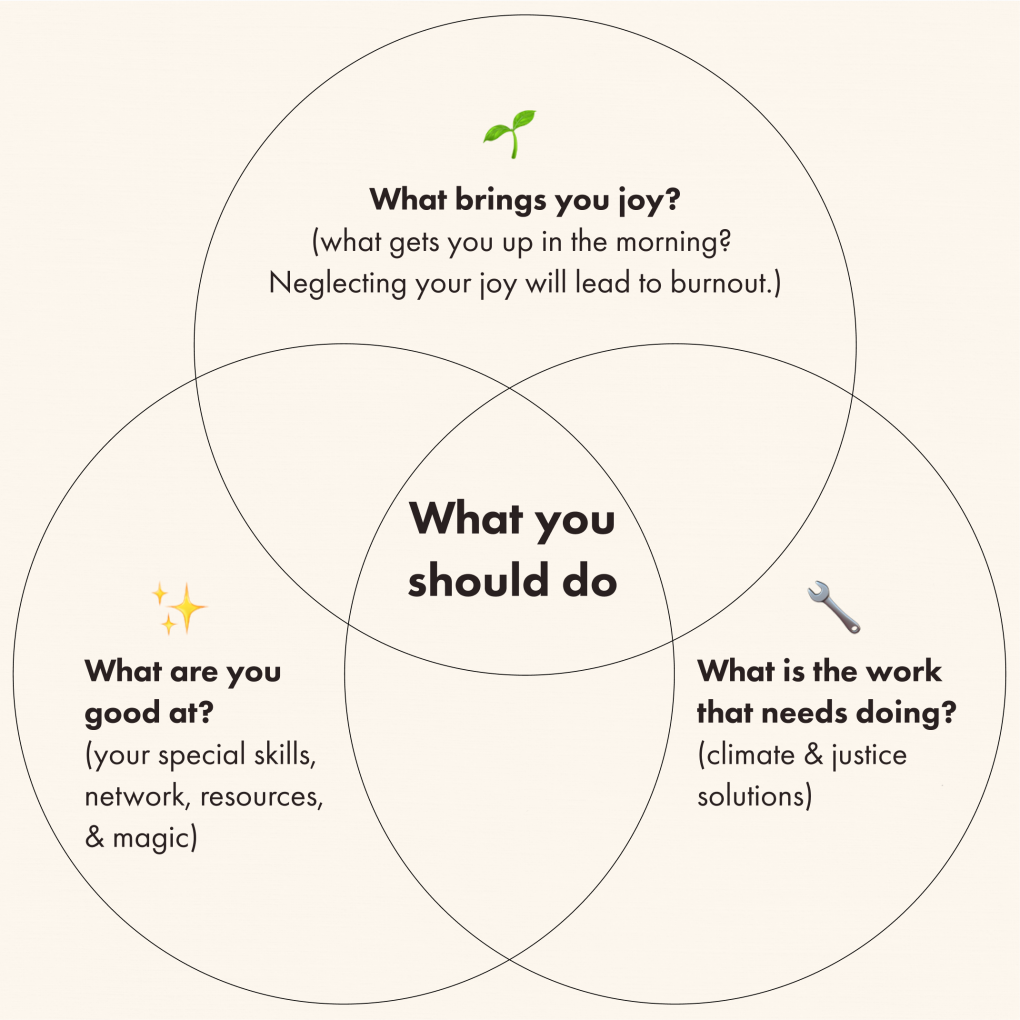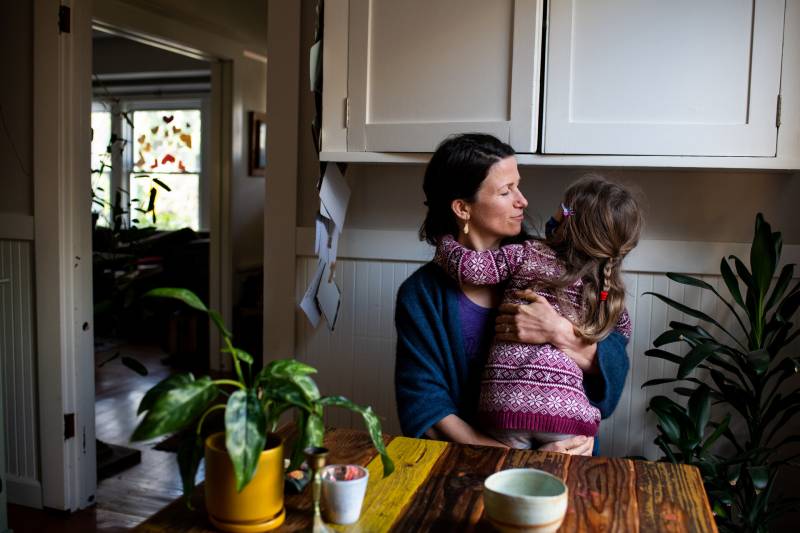KQED’s Laura Klivans spoke with McClure about Climate Health Now, which has more than 500 members.
The following interview has been edited for length and clarity.
Laura Klivans: Tell me about your climate awakening.
Dr. Ashley McClure: It was August, 2018. I was nursing my then 2-month-old daughter, Callalucia. She [had] just fallen asleep while I was sitting, so I didn’t want to move. I just happened upon the “Inconvenient Truth” sequel.
And at that moment, the climate crisis of 2 degrees Celsius and megatons of carbon and all these intellectual understandings — being a new mom and that fierce love and willingness to do anything — tears fell down my cheeks onto her.
Her life is so threatened by inaction: by my inaction, by our collective inaction. This is about the safety of everyone we love.
I always thought the experts had the climate crisis figured out; the experts will take care of it. But my job is being a doctor.
I realized the experts know what’s wrong, but they don’t have the power to make the changes that we need.
We all have a role to play in this catastrophe that threatens the safety of all of our loved ones.
How’d you relate to climate action before?
I’ve been a vegetarian for decades and I recycled and stuff, but [addressing climate change] was about my personal choices.
I figured, if I do my part, somebody else is going to do their part and experts are going to be leading the solutions. And once I realized that no one’s really watching the store, my sense of obligation became about much more than myself and my family; it’s about the collective fate.
Where did you start when it came to taking action?
Citizens’ Climate Lobby was my first climate home. But I realized in just a few months that it wasn’t using my greatest tool: being a physician.
If people are polled, they usually rate nurses as the most trusted professionals, then doctors, and then pharmacists. So that social trust is what we have to give to the climate movement.
I started networking and finding health professional colleagues who are also climate-concerned. Then around the youth climate strikes in September of 2019, I organized a big day.
We set up an urgent climate care clinic with a big banner in front of [U.S.] Speaker [Nancy] Pelosi’s office in San Francisco. We wore our white coats and had signs that said: ‘Climate change is a health emergency.’
We handed out medical excuse notes for all the students who were striking, saying as physicians, we support these children striking. The climate crisis is making asthma and heat worse. These compromise the health of kids.
We also had meetings with Speaker Pelosi’s office, then-Senator [Kamala] Harris’s office, Senator [Dianne] Feinstein and Congresswoman Barbara Lee.
And this led you and your co-founder, Dr. Amanda Millstein, to start your own organization?
We did a lot of soul-searching and discussed with mentors and colleagues whether we should join other groups. After careful conversation, we decided that there was a need [to create a new one]. There wasn’t a state-level group in California for doctors and nurses to bridge into the climate movement.
What does Climate Health Now do?
Here’s an example: Environmental justice groups have been working for years to get the Bay Area Air Quality Management District to require East Bay refineries to decrease the amount of particulate matter they produce. Particulate matter is a toxin that we breathe. It increases our risk of heart attacks, strokes and all-cause mortality.
The refineries were saying that to install these retrofits would be really expensive.
We joined in conversation with the community groups who had been leading this fight and asked them, ‘What can we do to help?’
And they said, ‘Have a press conference and have meetings with as many of the 24 air district board members as you can.’
Have a press conference? We didn’t learn about that in medical school.
But my partner, Dr. Amanda Millstein, pulled this off.
It was really powerful because we were working with community groups and we won. This was a historic vote of the communities winning. That’s a model of what we want to do across the whole state.
(Editor’s note: Chevron’s Richmond refinery and the PBF Energy–owned refinery in Martinez — two refineries facing regulations — questioned the environmental benefits of the rule change, arguing it would cost jobs and raise gas prices. The board overseeing the agency voted for the regulations last July. You can read more of KQED’s reporting on the issue).
What challenges have you come up against?
We get a lot of health care workers saying, ‘This isn’t in our lane.’
When I have a colleague who says this, I go to the science. That’s our shared language.
The science really clearly shows that in this moment, the greatest public health crisis is burning fossil fuels. The number of people in the world who die from fossil fuel-related air pollution every year is 8 [million] to 9 million.
All of the chronic disease management we’ve worked so hard on pales in comparison to the consequences of burning fossil fuels.
Climate change is not exactly in most of our lanes, but it’s also going to determine the outcome of all of our lanes. So we have to all expand our lanes.
How do you juggle this new work with your life?
There’s a lot of late nights, early mornings, and lunch hours packed with meetings. But it’s given me my way more than I’ve given it.
What have you gained from this work?
The community organizing I’m doing around climate is where I have found the most meaningful friendships I have. It’s become a new community.

